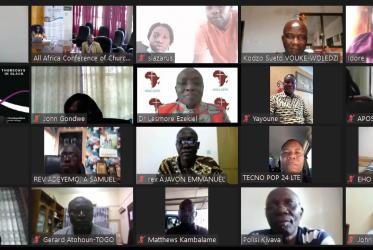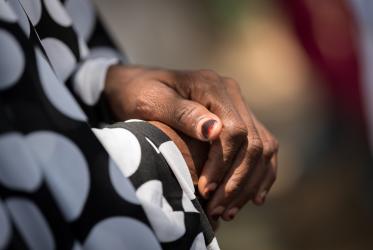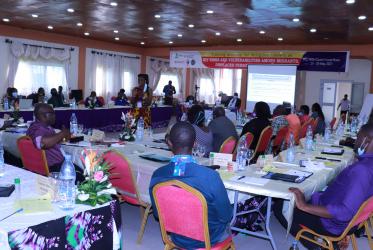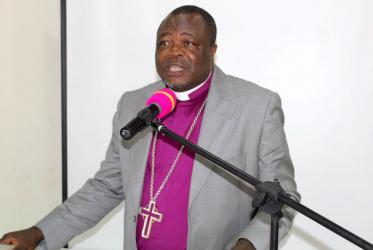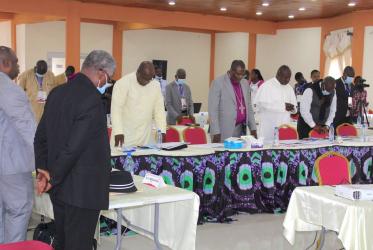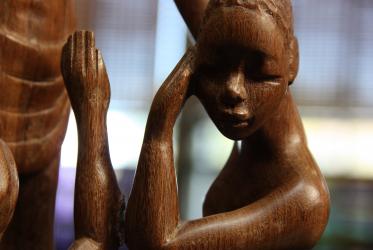Displaying 1 - 20 of 29
Cameroon conference on peace empowers religious leaders
30 November 2020
COVID-19 in conflict zones: “a crisis within another crisis”
27 November 2020
WCC appeals to UN: human rights must be upheld in Cameroon
09 September 2020
Young people in Togo: “Hear our voice! We want to tell our stories!”
07 November 2019
Knowledge of gender roles deepens in Togo
03 June 2019
WCC shocked by news of kidnapping at school in Cameroon
06 November 2018
WCC warns of growing risk of atrocities in Cameroon
02 August 2018
Youth engagement fundamental to HIV response
18 April 2017
